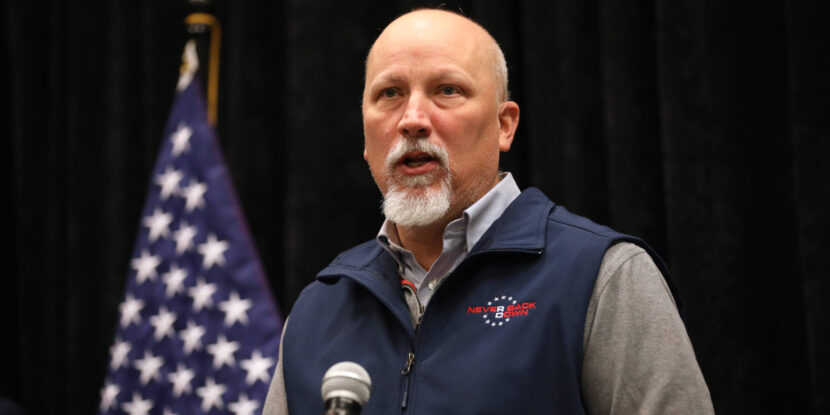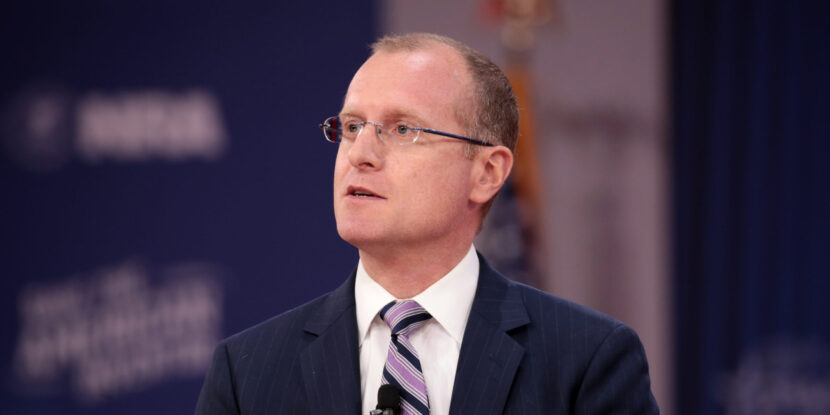
PULSE POINTS:
❓What Happened: The House Budget Committee voted down the House budget reconciliation bill, legislation referred to by President Donald J. Trump as the “Big, Beautiful Bill.”
👥 Who’s Involved: The House Budget Committee, Chairman Jodey Arrington (R-TX), Reps. Chip Roy (R-TX), Ralph Norman (R-SC), Andrew Clyde (R-GA), Josh Brecheen (R-OK), and Lloyd Smucker (R-PA), along with the committee’s Democrat members.
Your free, daily feed from The National Pulse.
📍 Where & When: U.S. House Budget Committee, Friday, May 16, 2025.
💬 Key Quote: “Hey, for the members, listen up, I do not anticipate us coming back today. I’ve had some questions; I know most of you are trying to get home. Go home. I’ll let you know this weekend if we’re going to return first thing on Monday. I think that’s the goal at this point,” Chairman Arrington said after the reconciliation bill failed in his committee.
⚠️ Impact: The rejection marks a significant hurdle for Republican House leaders seeking to meet their July 4 deadline for final passage through both legislative chambers.
IN FULL:
On Friday, the House Budget Committee voted down President Donald J. Trump’s proposed budget reconciliation bill, delivering a notable blow to Republican congressional leaders aiming for its final approval by Independence Day. The vote ended 16-21, with five Republicans joining Democrats in opposition to the legislation. The Republican lawmakers voting no were Representatives Chip Roy (R-TX), Ralph Norman (R-SC), Andrew Clyde (R-GA), Josh Brecheen (R-OK), and Lloyd Smucker (R-PA).
“Hey, for the members, listen up, I do not anticipate us coming back today. I’ve had some questions; I know most of you are trying to get home. Go home. I’ll let you know this weekend if we’re going to return first thing on Monday. I think that’s the goal at this point,” Budget Committee Chairman Jodey Arrington (R-TX) told members after the failed vote.
The multitrillion-dollar proposal, which makes the 2017 tax cuts implemented during Trump’s first term in office permanent, has been a point of contention among GOP lawmakers. Members of the House Freedom Caucus have demanded steep cuts to Medicaid, a move that risks voter backlash ahead of the 2026 midterm elections—and provides an avenue for Democrats to potentially regain a modicum of political momentum. Meanwhile, a group of more moderate Republicans from Democrat-controlled states has balked at what they say is too small of an increase in the state and local tax (SALT) deduction.
While the failed committee vote marks a setback for the reconciliation bill’s passage, House leaders remained firm that they’ll be able to move the legislation forward and on to the Senate by Memorial Day. Additionally, President Trump, who returned to the United States after concluding his Middle East tour on Friday, is likely to become increasingly involved in ramping up pressure on House Republicans to pass the budget plan.

PULSE POINTS:
❓What Happened: The Federal Communications Commission (FCC) will allow Verizon’s purchase of Frontier, a regional telecom company, to move forward, with the former agreeing to enact a series of reforms in alignment with President Donald J. Trump’s pro-worker, America First agenda.
👥 Who’s Involved: Verizon, Frontier, the FCC, FCC Chairman Brendan Carr, tower climbers, and telecom workers.
Your free, daily feed from The National Pulse.
📍 Where & When: Washington, D.C., on Friday, May 16, 2025.
💬 Key Quote: “The agreement between NATE, Verizon, and the FCC is massive news. As a 36-year tower contractor and employer of over 200 tower technicians, this brings fairness back to our relationship. We can’t thank Chairman Carr enough for looking out for Main Street while still being fair to Wall Street. We hope T-Mobile and AT&T will follow Verizon’s lead,” said Craig Snyder, a tower climber and one of the negotiators for his industry in the Verizon acquisition deal, in comments to The National Pulse.
⚠️ Impact: Verizon’s acquisition approval comes with a commitment to ending its diversity, equity, and inclusion (DEI) policies and programs and agreeing to a new set of pro-worker conditions with the tower climber and telecom worker industries.
IN FULL:
The Federal Communications Commission (FCC) is allowing telecom giant Verizon to acquire Frontier, a regional communications company, with the aim of expanding its fiber Internet service. Notably, Verizon’s acquisition was contingent on a series of policy and labor practice changes, in alignment with President Donald J. Trump’s pro-worker America First agenda, imposed by the FCC through its regulatory authority.
“By approving this deal, the FCC ensures that Americans will benefit from a series of good and common-sense wins. The transaction will unleash billions of dollars in new infrastructure builds in communities across the country—including rural America,” FCC Chairman Brendan Carr said in a statement announcing the acquisition approval. “This investment will accelerate the transition away from old, copper line networks to modern, high-speed ones. And it delivers for America’s tower and telecom crews who do the hard, often gritty work needed to build high-speed networks.”
One of the biggest concessions being made by Verizon is the company’s decision to end its diversity, equity, and inclusion (DEI) policies and programs. In a letter to Chairman Carr on May 15, the telecom company acknowledged that it “recognizes some DEI policies and practices could be associated with discrimination.” Verizon goes on to announce that it “is changing its HR structure and will no longer have a team or any individual roles focused on DEI.” The move comes after Chairman Carr informed a number of telecom and Internet technology companies that the FCC would halt license approvals and authorizations for those that maintain discriminatory DEI programs.
The FCC also highlights that the deal represents a win for American workers. Verizon, as part of the approval, is committing to rework its agreements with NATE, the Communications Infrastructure Contractors Association, and remove the costly burdens its policies have placed on tower climbers. These new provisions include taking into account considerations in pricing when it comes to site conditions, the adoption of regional pricing for tower climbers and telecom workers’ labor, 30-day payment terms with fair indemnity clauses, and limits on Verizon’s use of 1099 outside contractors, which have been used to undercut worker wages.
Craig Snyder, a tower climber and negotiator for his industry in the Verizon acquisition deal, told The National Pulse: “The agreement between NATE, Verizon, and the FCC is massive news. As a 36-year tower contractor and employer of over 200 tower technicians, this brings fairness back to our relationship. We can’t thank Chairman Carr enough for looking out for Main Street while still being fair to Wall Street. We hope T-Mobile and AT&T will follow Verizon’s lead.”
show less

 1 month ago
3
1 month ago
3








 English (US) ·
English (US) ·